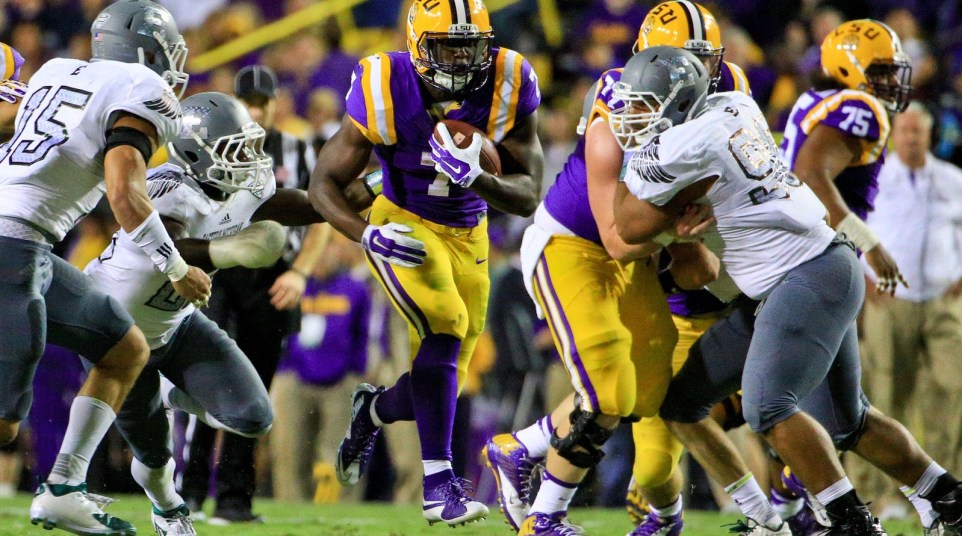
Can LSU develop offensive options to complement Leonard Fournette?
The formula for stopping LSU seems simple: stop Leonard Fournette.
So far, so good for the unbeaten Tigers. Their star running back has rushed for 864 yards in four games. Add Fournette’s 16 receiving yards and he has accounted for more than half of his team’s total offense.
In an era when most teams rack up more passing yards than rushing yardage and quarterbacks often carry the ball by design, the load Fournette carries in the Tigers offense is amazing.
So where can LSU offensive coordinator Cam Cameron turn if Fournette is not effective or not on the field?
With staunch opposing defenses from Alabama (in Tuscaloosa) and Florida (at Death Valley) looming ahead on the schedule, LSU may not be able to depend so heavily on its first option.
Fortunately for Cameron, he has several options, beginning with Fournette’s talented backups.
Darrel Williams, a 232-pound bruiser and a former four-star recruit, doesn’t have Fournette’s big-play capability (who does?). But he’s averaged 5.5 yards on 33 carries.
Freshman Derrius Guice, one of the nation’s top recruits, checks in with 102 yards on only 13 carries. He has more big-play potential than Williams and is a strong receiver from the backfield.
Harris’ role can be greatly expanded in the passing and running games. Another touted recruit with a strong arm and breakaway speed, Harris can be more than a game manager, which he performed expertly in the Tigers’ three turnover-free games to open the season
“He’s so much beyond (last season), it’s not funny,” LSU coach Les Miles told reporters before the season.
Harris has plenty of weapons for an all-out air assault, beginning with Travin Dural, who racked up 758 yards on 37 catches with seven touchdowns last season, but has only 10 catches for 120 yards this season.
Malachi Dupre, a former five-star recruit, has eight catches for 122 yards. At 6-foot-3, he’s a big target who can go above defensive backs for jump balls.
The Tigers are stocked with top recruits and potential big-play performers. But with Fournette running over and around opponents for 220 yards total offense per game, LSU has had no reason to change its simple offensive formula.
